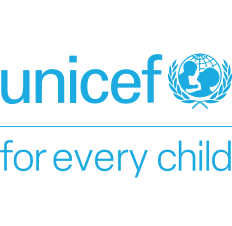
Food is a choice – what we eat is what we become
By: Nikola Šućur, Marketing Director, Baby Food Factory
I remember what breakfast looked like when I was a child. It was usually already waiting for me on the table — two fried eggs, “white” coffee, cheese, pâté, some salami… And for something sweet, I’d get a biscuit that’s still well-known today — though back then, it didn’t seem sweet to me at all. Only much later did I realize it contained a lot of sugar — too much, actually.
Every part of the meal had its purpose: mint was “for the stomach,” soup “for a cold,” spinach “for iron,” walnuts “for the brain.” I didn’t see it as a trend but as a persistent reminder from my parents that every ingredient has a role. Only later did I understand how true that simple logic was.
Today, when I stand in front of a supermarket shelf, I see those same messages returning — only in new packaging. Labels now say “no sugar,” “high in fiber,” “plant-based.” But often, those very claims can be misleading. “No added sugar” means there’s none — but it doesn’t say what is inside, or how that other stuff might affect our health. That’s why my advice is simple: read the labels carefully. Don’t trust only the big letters on the front of the packaging.
I’m privileged to work at Baby Food Factory, where our labels are transparent and there are no hidden ingredients. We make sure that every puree, snack, or meal is simple, clean, and clear. Our vision is for parents and adults to know exactly what they’re getting — and to be confident that their choice truly does good. I know that’s not the easy path; it’s often the more expensive and demanding one — but I believe it’s the only right one.
Our shopping basket reveals much more about us than we think — when we’re tired or stressed, we reach for something quick, usually not so healthy. When we crave a fresh start, we choose fruit, vegetables, something whole-grain. Food has become an extension of our identity — a reflection of our wishes and worries.
Experience has taught me that food doesn’t just follow age — it follows lifestyle. As a child, I’d be given an apple “to stay healthy.” Today, I see that the same rule applies to adults — only now, the apple is sometimes replaced by a practical meal that fuels us between meetings or a healthy snack on the go. Food changes with us, adapts to our habits and needs, yet stays true to its basic purpose — to be our ally.
The truth is, we’ve never had more choices, yet we’ve never been more confused. We want natural and simple, but also convenient and fast. We want pleasure, but also health. We make compromises — yet every small choice has consequences. I’ve been through that myself — there were times when coffee was my “breakfast,” and chewing gum my “snack.” Only when I changed those habits did I realize how just a few minutes for a proper breakfast can transform the whole day. Small wins, when repeated, become big change.
Health through nutrition doesn’t happen through revolution, but evolution. It’s built on small, consistent decisions — a glass of water instead of soda, fruit instead of chips, five extra minutes for a meal instead of eating on the go. Innovations in food production are moving in that direction: to make our decisions easier, to connect tradition with modern needs, to offer solutions that are not tricks — but true support.
Unfortunately, there are too many tricks in the market today — so be cautious.
In the end, food is much more than taste. It’s a story about us — about how we live, what we value, and how much we care for ourselves and others. Food is, and should remain, a pleasure — but it’s also the simplest way to build a better life.
Food is a choice. And what we choose — is what we become.
*Originally published on the InStore website

